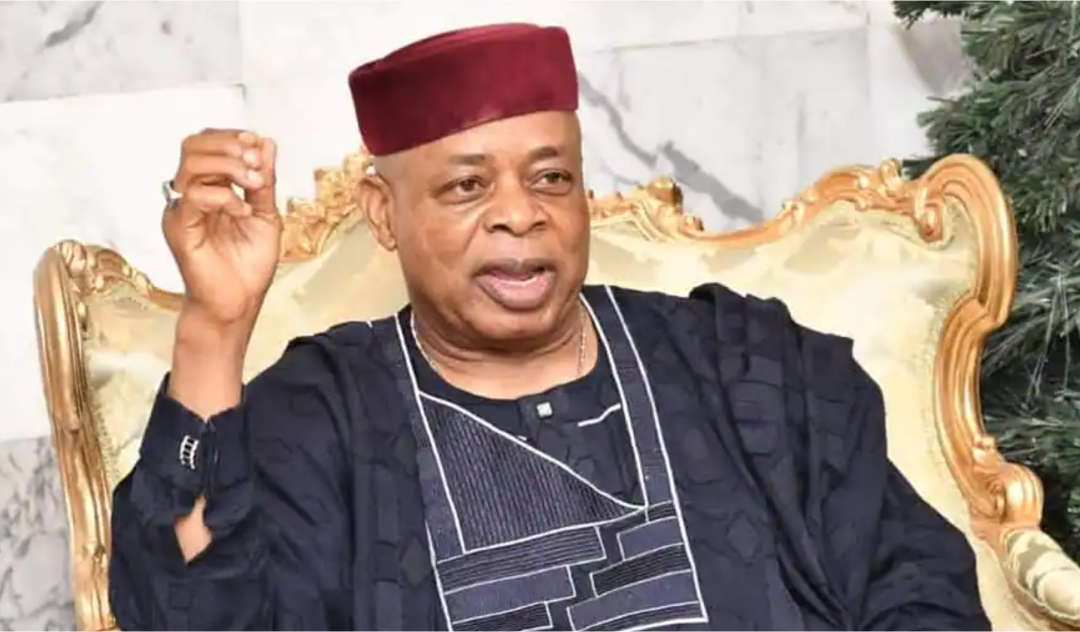Ken Nnamani is one of Nigeria’s most respected political figures, known for his principled leadership, legislative reforms, and unwavering commitment to democracy. From his rise in business to his impactful political career, Nnamani’s story reflects resilience, dedication, and service to the Nigerian people.
Early Life and Education
Ken Nnamani was born on November 2, 1948, in Enugu State, Nigeria. He hails from Enugu South Local Government Area and grew up in a family that valued education and discipline.
Nnamani attended primary and secondary school in Enugu before traveling abroad for higher education. He studied at Ohio University in the United States, where he earned a degree in Business Administration, followed by a master’s degree in Marketing. His exposure to global ideas shaped his leadership vision and problem-solving approach.
Career Before Politics
Before venturing into politics, Ken Nnamani had a successful career in the private sector. He worked with multinational companies, including DuPont De Nemours International and Nova Chemicals International, where he gained extensive experience in corporate governance and management.
His professional background in business equipped him with strong negotiation, planning, and policy-making skills—qualities he would later bring into the political arena.
Political Career and Achievements
Ken Nnamani entered Nigerian politics in the early 2000s, joining the Peoples Democratic Party (PDP). In 2003, he was elected as a Senator representing Enugu East Senatorial District.
President of the Nigerian Senate
In 2005, following the resignation of Senator Adolphus Wabara, Ken Nnamani became President of the Senate. His tenure was marked by transparency, adherence to due process, and commitment to democratic principles.
One of his most notable achievements was his role in stopping the controversial Third Term Agenda, which sought to amend the Nigerian Constitution to allow President Olusegun Obasanjo to serve beyond the two-term limit. His stand on this issue earned him national and international praise.
Post-Senate Roles and National Service
After leaving the Senate in 2007, Ken Nnamani continued to contribute to governance and policy development.
He has served as:
-
Chairman, Governing Board of the Infrastructure Concession Regulatory Commission (ICRC)
-
Member, ECOWAS Parliament
-
UNDP Good Governance Advocate
-
Special Adviser to Various Government Committees
In 2016, he joined the All Progressives Congress (APC) and was appointed as the Chairman of the Electoral Reform Committee, tasked with improving Nigeria’s electoral system.
Awards and Recognitions
Ken Nnamani has received numerous awards for his leadership and contributions to Nigerian democracy, including:
-
Commander of the Order of the Federal Republic (CFR)
-
Leadership Excellence Awards from civil society groups
-
International recognition for promoting good governance
Personal Life
Ken Nnamani is married and blessed with children. Despite his busy schedule, he remains a devoted family man. He is also involved in charity work, focusing on education and youth empowerment.
Net Worth (2025 Estimate)
As of 2025, Ken Nnamani’s estimated net worth is $5 million. His wealth comes from a combination of his business ventures, political career, consultancy roles, and investments.
Legacy and Impact
Ken Nnamani’s legacy lies in his fearless defense of Nigeria’s democratic process, especially his stand against the Third Term Agenda. He is celebrated as a politician who placed national interest above personal gain and continues to advocate for electoral reforms and good governance.
Quick Facts Table
| Full Name | Ken Ugwu Nnamani |
|---|---|
| Date of Birth | November 2, 1948 |
| State of Origin | Enugu State |
| Political Party | All Progressives Congress (APC) |
| Profession | Politician, Businessman |
| Net Worth (2025) | $5 million |
| Notable Role | President of the Nigerian Senate (2005–2007) |
Conclusion
Ken Nnamani remains a shining example of integrity in Nigerian politics. From his corporate background to his role as Senate President, he has consistently demonstrated that leadership should be about service, accountability, and protecting democracy.
His influence in politics and governance continues to inspire the next generation of leaders who believe in the principles of justice, fairness, and patriotism.











